FACT-O Round Table: Impacts of Climate Change on the Ocean
On November 17, 2017 the French Ameri-Can Climate Talks – Oceans (FACT-O) will be hosting a conference in Vancouver to highlight the impacts of climate change on biodiversity in deep…
On November 17, 2017 the French Ameri-Can Climate Talks – Oceans (FACT-O) will be hosting a conference in Vancouver to highlight the impacts of climate change on biodiversity in deep…
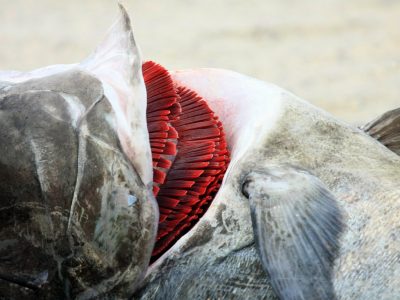
Fish are expected to shrink in size by 20 to 30 per cent if ocean temperatures continue to climb due to climate change. A new study by researchers at the Nippon Foundation-UBC Nereus Program provides a deeper explanation of why fish are expected to decline in size.
Nereus Director of Science William Cheung (UBC) will be participating in the National Symposium on Climate Change hosted by the Abu Dhabi Global Environmental Data Initiative (AGEDI) March 13-15 in…

Nereus Fellow Richard Caddell (Utrecht) and Chair of the Nereus Steering Committee Daniel Pauly (UBC) attended the Arctic Frontiers Conference in Tromsø, Norway, from January 22 to 27. The conference brought together more than 1400 representatives from academia, government, and business to discuss the challenges associated with sustainable development in the Arctic.
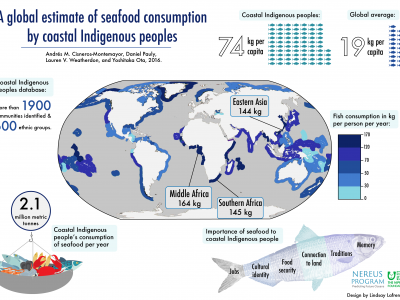
Coastal Indigenous people eat, on average, 15 times more seafood per person than non-Indigenous people in the same country, finds a Nippon Foundation-Nereus Program study published today in PLOS ONE. This highlights the need to consider food sovereignty and cultural identity as part of fisheries policy and Indigenous human rights.
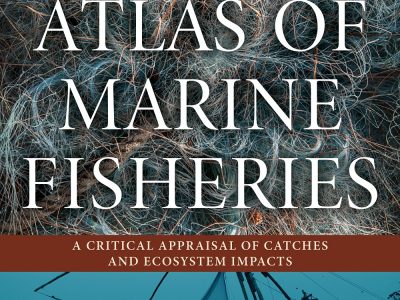
For the past ten years, Sea Around Us has been constructing a more accurate view of world fishery catches, finding, among other things, that 30% of catch goes unreported. Now the work of 400 researchers from 273 countries, led by Daniel Pauly and Dirk Zeller, has been compiled in a comprehensive 520-page book called the Global Atlas of Marine Fisheries.
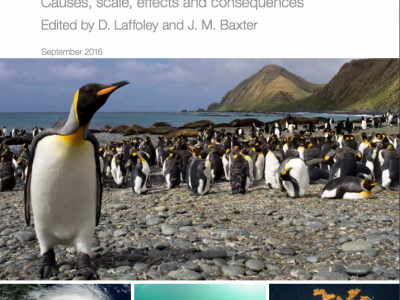
Explaining Ocean Warming is a comprehensive report produced by the International Union for Conservation of Nature (IUCN) looking at the impacts of warming on ocean life, ecosystems, and goods and services. The report is the work of 80 scientists from 12 countries, launched during the IUCN World Conservation Congress, September 1-10 in Hawaii. Nereus Program research was contributed to two chapters within the report.
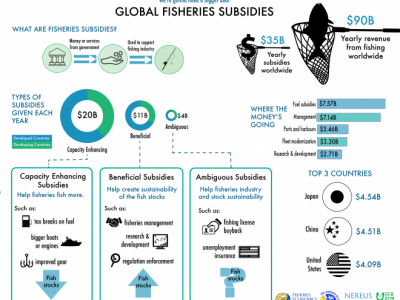
OceanCanada Research Director Rashid Sumaila and his collaborators from the UBC Global Fisheries Cluster (Sea Around Us and the Nereus Program) have published an updated estimate of global fisheries subsidies in the international journal Marine Policy. The researchers found that the global fishing industry is being supported by $35 billion yearly in government subsidies, the majority of these, upwards of $20 billion annually, promote increased capacity that can lead to harmful impacts such as overfishing.

Countries drastically underreport the number of fish caught worldwide, and the numbers obscure a significant decline in the total catch.
The new estimate, released today in Nature Communications, puts the annual global catch at roughly 109 million metric tons, about 30 per cent higher than the 77 million officially reported in 2010 by more than 200 countries and territories. This means that 32 million metric tons of fish goes unreported every year, more than the weight of the entire population of the United States.
Yoshitaka Ota (Nereus Director, Policy, UBC) moderated a seminar titled “Who owns the ocean? Equity and conservation in the global ocean commons” on October 23, 2015, at the Liu Institute for Global Issues, UBC. A presentation was given by Dr. Majro Vierros who is a Senior Fellow at the United Nations University Institute for the Advanced Study of Sustainability (UNU-IAS) and its Traditional Knowledge Initiative (TKI). The seminar addressed important issues of high sea governance and benefit sharing of marine resources.